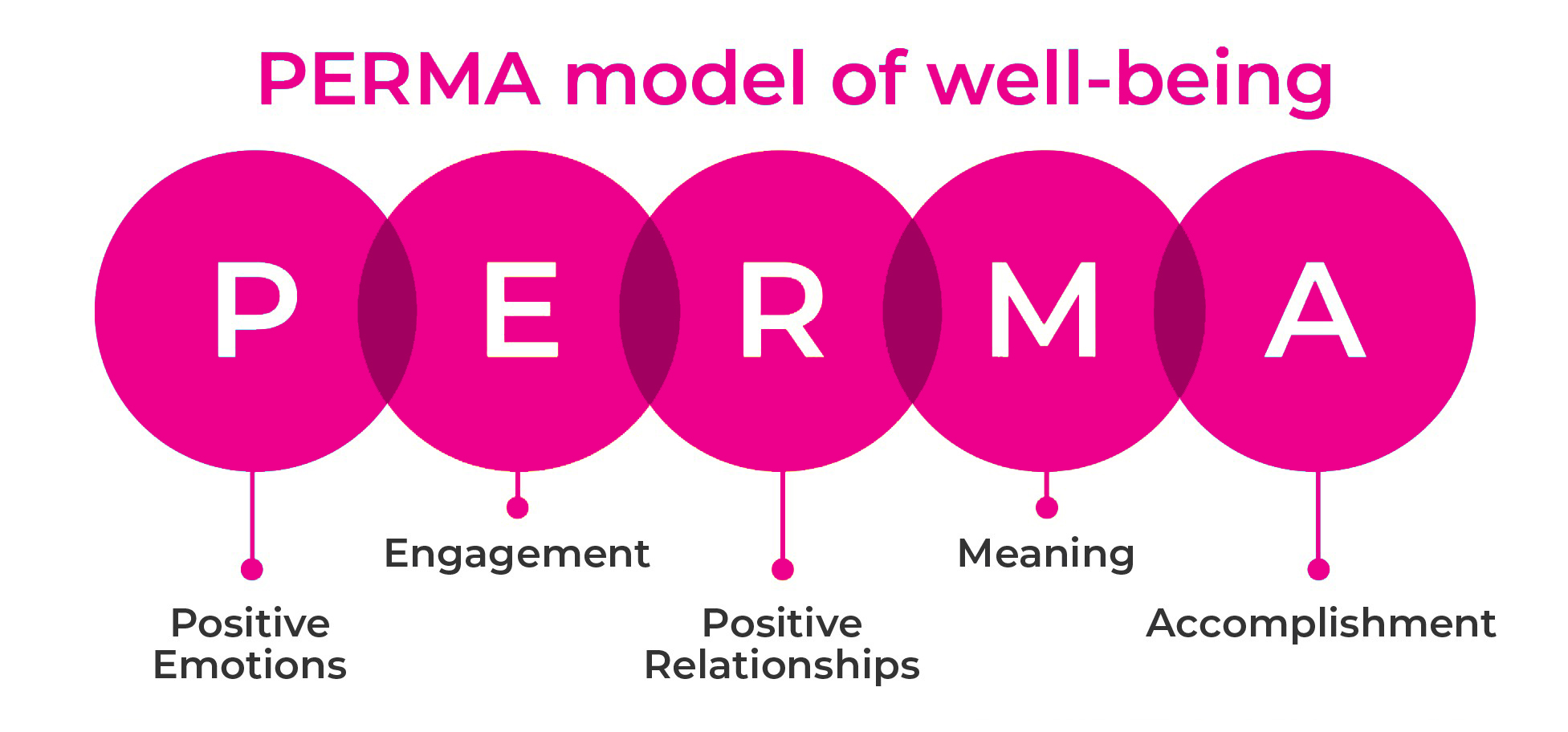5 Ways Positive Psychology Leads To Happier Ageing
“It is not the years in your life that count, it is the life in your years.”
(Adlai Stevenson)
Traditionally, clinical psychology has been used to identify and manage negative emotions or treating mental illness. Whilst this is helpful, it’s also important that people who are facing challenges in their daily lives learn to thrive, not just survive.
Positive psychology is a relatively new field that shifts the focus away from the clinical problems towards the promotion of wellbeing and the creation of a meaningful life.
It’s not about pretending that life is all sunshine and rainbows, because that would be impossible. However, recent research has shown that positive psychology allows us to enjoy a pleasant life even despite our hardships.

What is Positive Psychology?
Positive psychology refers to the study of how we can best function and promote human flourishing. It also refers to the theory that certain personal strengths and virtues can enable individuals, communities and organisations to thrive.
The practice is underpinned by the belief that our experience of love, work, and play is enhanced by leading a meaningful and fulfilled life.
“Positive Psychology is not a fad. Positive Psychology is a science that brings the many virtues of science – replication, controlled causal studies, peer review, representative sampling (to name a few) – to bear on the question of how and when people flourish.” (Robert Biswas-Diener, 2008). – Robert Biswas-Diener is a positive psychologist, author and instructor at Portland State University.
Why is Positive Psychology Important?
The benefits of positive psychology not only extend to our mental health but also our physical health too.
Science has proven that stress is directly linked with our immune system.
This means our bodies are more susceptible to bacterial and viral attacks if we have endured stress and/or other ‘negative’ experiences.
Positive thinkers also have lower blood pressure and a lower risk of cardiovascular diseases.
Having an optimistic outlook on life also benefits those who are dealing with serious conditions, and has been shown to aid recovery and the ability to tolerate medical treatment.
The Four Aims of Positive Psychology
- Rise to life’s challenges, and make the most out of setbacks
- Engage with other people to build positive relationships
- Find fulfilment in creativity and productivity
- Help others to find lasting meaning, satisfaction and wisdom
PERMA Model of Well-Being
Positive psychology focuses on the ‘Well-Being Theory’, which asserts that there are five components to leading a good life. This is called the PERMA model:

These five components are key to how all of us can cultivate Happier Ageing.
1. Positive Emotion
Much more than merely ‘happiness’, positive emotions encompass feelings of authentic happiness; feelings of love, compassion, gratitude, hope and excitement.
Increasing positive emotions encourage individuals to build their resilience and improve their overall well-being.
How you can increase positive emotions:
- Spending time with your favourite people
- Doing activities that you enjoy
- Listening to upbeat or uplifting music
- Taking time to reflect on what you are grateful for in your life
2. Engagement
Engagement occurs when we are completely immersed in the present moment and the task at hand.
People are more likely to experience engagement when they utilise their character strengths.
How you can increase engagement:
- Participate in activities that make you lose track of time when you do them
- Practice living in the moment when completing mundane tasks
- Spend time in nature
- Identify and learn about your character strengths, and do things that you are good at
3. Relationships
Whether a partner, friend, family member or furry friend, we all want to feel supported and valued by our loved ones. This is because as mammals, we are inherently social creatures.
Having a good social environment has been found to promote better physical health, as well as prevent cognitive decline.
How you can build better relationships:
- Join a new class or group with a common interest
- Ask the people you don’t know very well questions about their lives
- Reconnect with people you haven’t spoken with for a while
4. Meaning
The age-old question: What is the meaning of life? We all want to know because we want to belong to something greater than ourselves.
Having a purpose in life serves to help people focus on what is important to them in the face of adversity.
Whether through personal growth, a profession, a social cause, religious belief or creative endeavour, people who cultivate meaning tend to experience greater satisfaction and fewer health setbacks.
How you can create meaning in your life:
- Get involved in a cause that matters to you
- Think about how you can use your passions to help others
- Spend time with people you care about
5. Accomplishments
A sense of accomplishment materialises after working towards reaching our goals. This contributes to well-being so that individuals can feel pride in their lives and have the motivation to take care of themselves.
How to build accomplishment:
- Set SMART goals – specific, measurable, achievable, realistic and time-bound.
- Reflect on past successes
- Look for ways that you can celebrate yourself!

PERMA Premium
For a more frequent positive affect, here are some extras that can assist you in the Perma Model.
Optimism
Always look on the bright side of life because it is possible to have a happy life. Optimistic people tend to cope better with stress and have lower levels of depression.
Exercise
Physical activity has long been linked to overall well-being. Aside from the obvious physical benefits of being active, an increase in physical activity also decreases anxiety and depression symptoms, as well as promotes better mental cognition.
Nutrition
It’s important to eat a diet that is rich in vegetables and nutrients, especially where age is concerned. It’s no surprise that the cities that have the highest life expectancy in the world are the ones that eat a diet rich in vegetables, fish, grains and unsaturated fats. This diet not only reduces symptoms of depression but has an array of added health benefits.
Sleep
Research in neuroimaging and neurochemistry has found that a good night’s sleep fosters heightened resilience, while sleep deprivation leads to negative thinking and vulnerability. Avoiding nicotine, caffeine, alcohol, excessive screen time and immobility can aid in getting those 7-9 hours of sleep in.
Happier Ageing = Longer Lives
Studies show that the power of positive thinking not only helps us to live happier but to live longer too.
Adopting positive psychology can extend our lifespan by 11-15%, with a stronger likelihood of living to age 85 or older. This statistic even factors in income, depression and health status. It serves to echo our philosophy that no matter one’s circumstances, it is always possible to live a better life. Age serves as no barrier against fulfilling your full potential to the best of your ability. The power of positive thinking means you’ll not only be able to survive longer but thrive longer too.
At Nurse Next Door, we are celebrating ageing and are passionate about Making Lives Better.
To learn more about The Power of Happier Ageing you can download our report
or contact us today on 1300 600 247 to discuss how Nurse Next Door can help you keep doing what you love.
